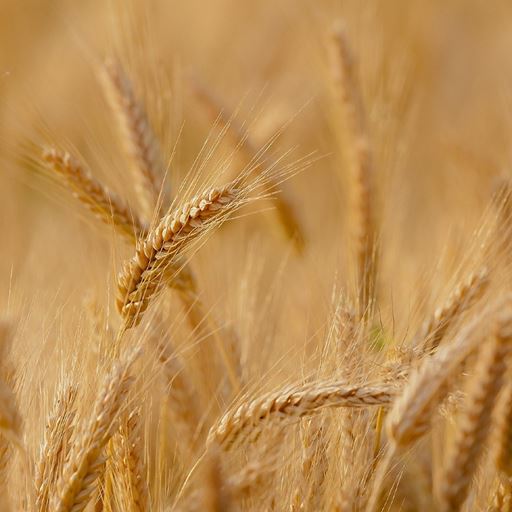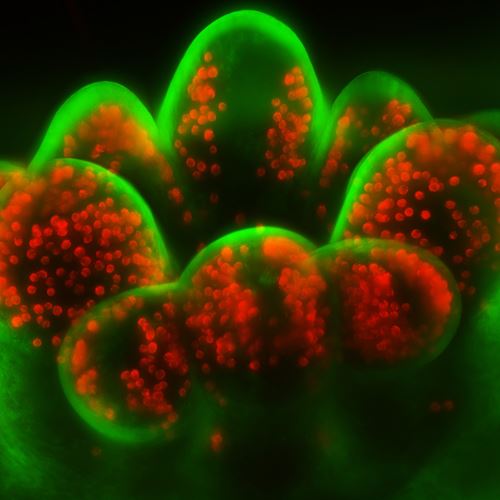Impact: Finding solutions to feed the world whilst caring for the planet
-
Tagged under
Environment and sustainability

There is a global challenge to feed the world’s booming population. But at what cost will this be to our precious environment as more pressure is placed on the agricultural industry to continually deliver more.
Essex research by Professor Jules Pretty has shown that sustainable intensification not only increases farm productivity but can also support our valuable ecosystems.
This work has benefited policy makers, farmers, ecosystems and businesses in the United Nations’ (UN) 194 member states, across 130 countries worldwide, by shaping the development of a ground-breaking UN agriculture food systems framework and influencing the recommendations of the UN Food and Agriculture Organization and Intergovernmental Science-Policy Platform on Biodiversity and Ecosystem Services on agricultural development policy.
The challenge
We need to increase food production to cope with the world’s future population growth. This usually means intensifying agriculture by using more fertilisers and pesticides which have a negative impact on the environment – destroying habitats, damaging wildlife and polluting our rivers and oceans.
Agricultural systems worldwide have become a major source of harm to biodiversity and ecosystems and are a leading contributor to climate change, biodiversity loss, nutrient loading and localised air pollution.
Although per capita global food production has increased by 1.5-fold over 50 years, about 800 million people across the globe are malnourished.
Substantial increases in farm productivity are needed; the challenge is achieving this without causing further harm to biodiversity, climate and ecosystem processes and functions.
Landmark global agreements, including the UN Sustainable Development Goals and the Paris Climate Change Agreement have emphasised the need for innovation in food systems to meet this challenge.
What we did
Professor Jules Pretty came up with the idea of new intensive ways of farming at the same time as protecting the environment.
He first proposed the concept of sustainable intensification (SI) in 1997 to suggest there were new forms of agricultural intensification that could both boost crop/livestock productivity and reduce/eliminate harm to non-farmed organisms, species and natural agro-ecosystems.
SI harnesses agroecological interactions – such as pollination, predation, parasitism and nitrogen fixation - to develop components that deliver beneficial services for agriculture and ecosystems.
Essex-led research since 2000 has brought together a wide-range of international collaborators who have established the credibility of SI evidence for co-production of biological resources (food, fibre, timber) and improved natural capital (structural diversity and services).
SI offers a practical pathway towards achieving the goal of increasing food production whilst minimising or eliminating negative environmental impact.
What we changed
Global figures show that 29% of the world’s 508 million farms have now adopted some form of SI covering more than 500 projects in 80 countries, demonstrating crop and livestock productivity increases of 79%-113%.
A key strength of Professor Pretty’s research has been to identify and calculate the negative impacts of agriculture on natural ecosystems and human health.
The first detailed analysis of the ecological impacts worldwide of synthetic pesticides was published by Professor Pretty as part of the study of the benefits of implementing integrated pest management at 85 projects in 24 countries in Asia and Africa.
World agriculture uses 3.5 billion kg of pesticide active ingredients annually, with a huge knock-on environmental cost worldwide, yet Essex research showed that the harnessing of agroecological processes on farms and across landscapes had increased crop productivity by 41% whilst reducing pesticide use by 69%.
Since 2000, Professor Pretty’s extensive research in this area has made him a leading authority on agroecological approaches through SI, leading to his engagement with UN organisations where he has guided the development of key programmes.
Through these programmes, his research on SI has shaped the ground-breaking food systems evaluation framework TEEB (The Economics of Ecosystems and Biodiversity) Agriculture and Food (TEEBAgriFood) an UNEP global initiative, which aims to protect biodiversity and contribute to a more sustainable agriculture and food sector. Professor Pretty played a central role in the establishment of TEEBAgriFood as an invited expert advisor on the Project Steering Committee, where he regularly contributed to key decisions.
This new evaluation framework was applied in pilot studies in Africa, Brazil and India and since 2019 has been implemented through framework testing projects in Kenya, Tanzania, India, China, Malaysia, Indonesia, Thailand, Columbia, Brazil and Mexico. In May 2020, Professor Pretty was appointed to lead a new implementation project applying the framework to evaluate zero-budget and community-managed natural farming practices in India.
His research on SI has also informed recommendations on agricultural development policy for the UN’s 194 member states across 130 countries benefiting policy makers, farmers and businesses worldwide.
The UN Food and Agriculture Organization (FAO) leads international efforts to defeat hunger working in partnership with governments at global, regional and national levels.
Professor Pretty was a key contributor and co-ordinating editor to the UN FAO’s flagship Save and Grow programme for sustainable crop production intensification which supports policy makers and farmers to realise greater biological productivity while conserving natural resources.

